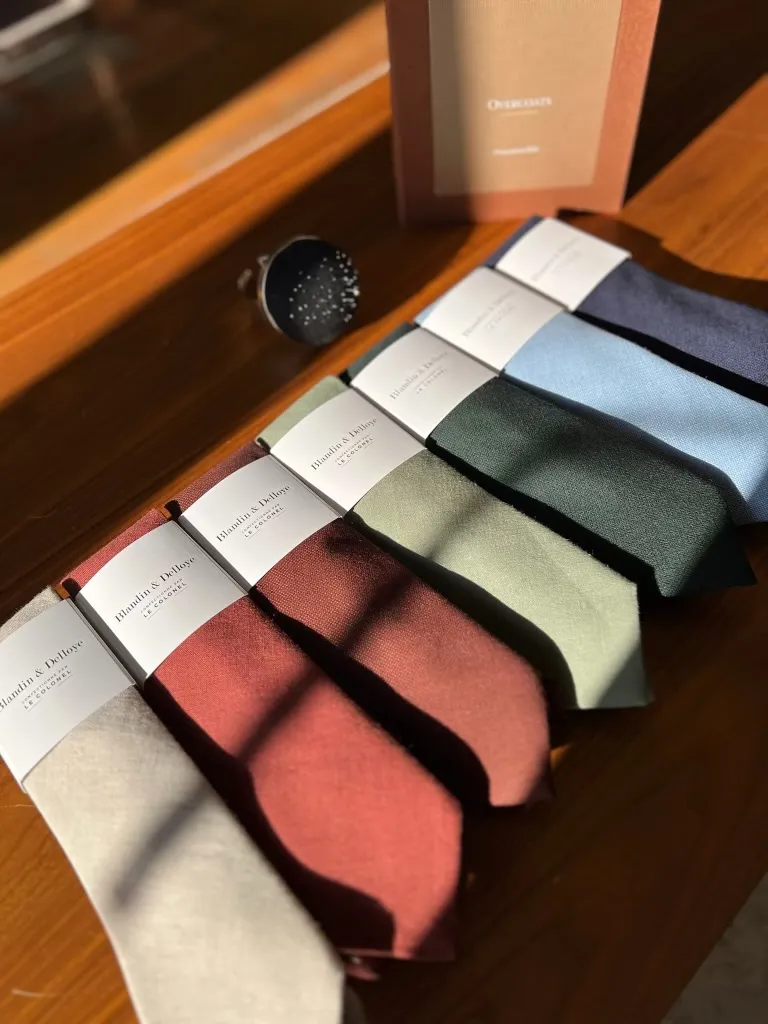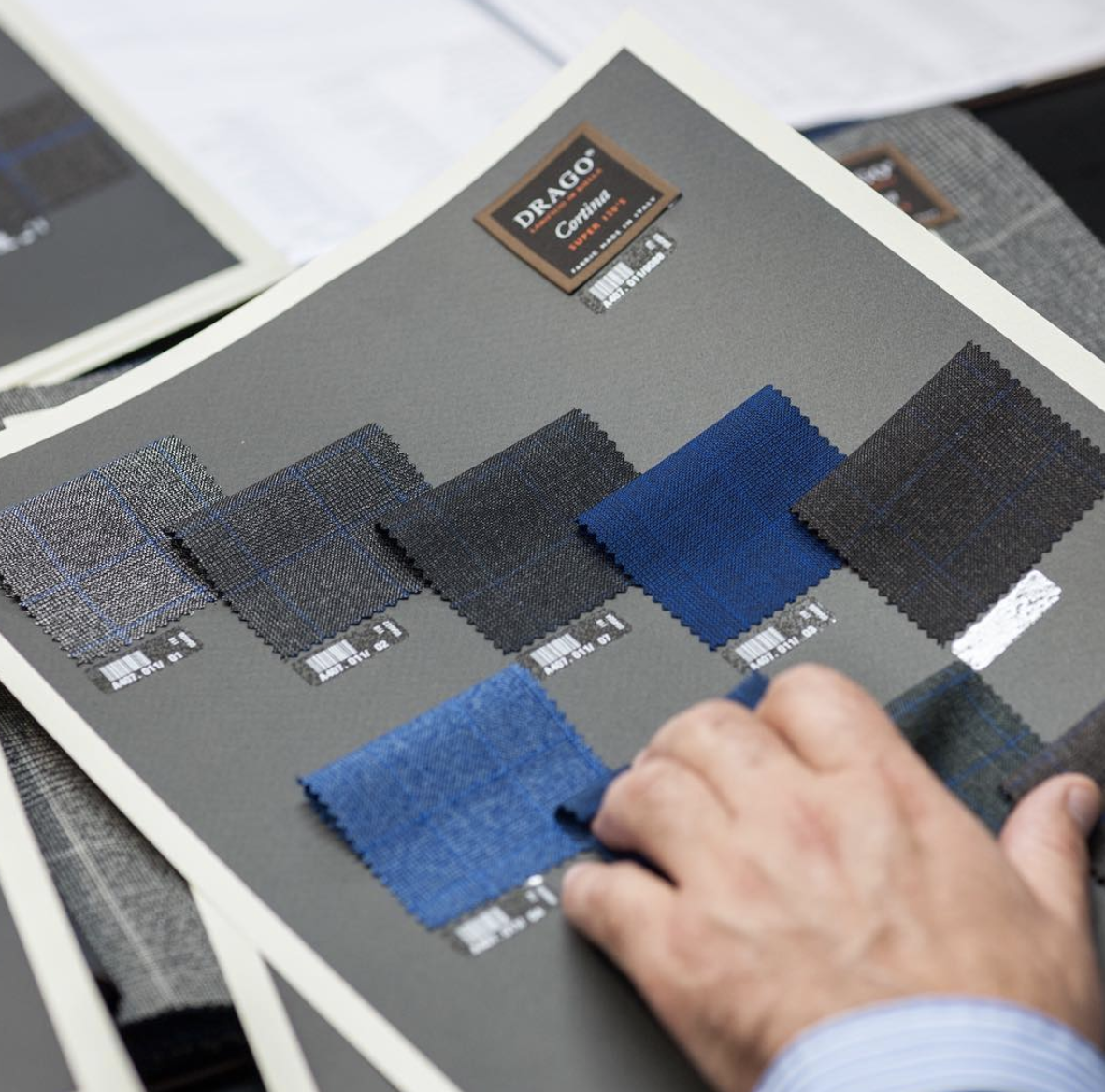
Which fabric is best for my suit?
Choosing a suit color is easy, but choosing a material is probably less straightforward.
Various criteria must be taken into account: price, quality, breathability and, of course, know-how…
Between wool, the flagship material for suits, and inferior synthetic fabrics, there’s a wide choice of materials to choose from for a stylish, elegant suit.
1 – Wool
Wool! Here’s the queen of all suit materials. It’s a natural textile fiber derived from sheep’s fleece. It can also come from other animals: mohair wool, cashmere from angora goats, angora wool from albino rabbits. Other animals also provide wool: llamas, camels, etc.
Wool is the most popular choice for a suit, because it’s a material with many assets. It can be used on its own or combined with other fibers to make a garment.
In fact, it’s common to see it blended with quality materials such as cotton, silk or linen for a chic, elegant and shiny finish. Well-worked 100% wool can also offer a beautiful fall and hardly wrinkle at all.
It’s often said that wool suits are not for summer wear. On the contrary, it’s suitable for all seasons, but your choice should depend on the weight of the fabric. For a summer suit, choose a fabric weighing around 200 grams per square meter.
If you’re planning a winter suit, you can opt for a fabric weighing 300 grams per square meter or more for optimum comfort. If you need a suit you can wear in all seasons, a wool fabric of 250 or 270 grams per square meter is an excellent choice.
2 – Cotton
After wool, cotton is also a very popular choice for a suit. Its great advantage lies in its extreme lightness. This material from the semi-tropical plant can be worked in a variety of ways to produce different fabric shapes: moleskin, seersucker, velvet…
This variety allows you to adopt the cotton suit in different circumstances.
A star material for hot weather, cotton is also renowned for its breathability. In this case, opt for a two-piece suit with an unstructured jacket for a casual look. Cotton’s other advantage is its price. Cheaper than wool, it gives you the advantage of a good-quality suit at a reasonable price.
But be careful! Cotton does not tolerate contact with water and other liquids. So avoid getting wet while wearing your elegant cotton suit.
Like cotton, linen is also a very interesting material for making a summer suit. It’s lightweight and hardwearing. Some will tell you to forget it, because it wrinkles more than other fabrics. Yet suits made from this material are particularly elegant. They are suitable for a wide range of people and situations. Linen also offers a wide choice of colors.
Don’t hesitate to opt for linen suits in classic colors such as gray, blue or beige for mid-season.
Linen suits also work perfectly with other materials. It’s not uncommon for men to wear jeans or cotton pants to bring out the elegance of a linen jacket.
Last but not least, linen is non-irritating to the skin, making it perfect for sensitive skin.
A luxury material, silk is usually combined with other materials to give it a more refined look. It’s very rare to find a suit made from 100% silk. Silk adds a natural, fluid sheen to the fabric in which it is blended. This luminous aspect makes silk the ideal material for sublimating suits and other eveningwear.
5 – Synthetics
Synthetic fabrics include polyester, viscose, etc. Often described as low-end garments, they have been adopted for the mass production of low-cost suits. They mimic stylish suits, but offer few advantages. Suits made from these materials are hardly breathable at all.
Beware! They’ll make you sweat a lot under your shirt and vest. And excessive sweating means unpleasant odors. They’re also not very suitable for winter, as they have no capacity to retain heat. Forget them if you’re averse to fabrics that crease and wrinkle easily.
The only advantage of synthetic suits is their price. You can buy a suit for around 100 euros.


